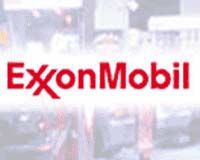 |
Lagos (AFP) Nov 6, 2009 China has dangled a near open cheque book to Africa's major oil producers in a bid to guarantee supplies for decades to come. It has offered 30 billion dollars to Nigeria and is negotiating for stakes in oil fields in Ghana and Angola and companies that exploit the fields throughout Africa. China's thirst for oil is expected to be a major topic at the Forum on China-Africa Cooperation, when Chinese Premier Wen Jiabao meets African leaders and ministers in the Egyptian resort of Sharm el-Sheikh from Sunday. Nigeria, the world's eighth largest producer, appears to be resisting China's approach to buy one sixth of its proven reserves. Nigeria already supplies about one fifth of the United States's oil needs. President Umaru Yar'Adua recently told Peter Voser, chief executive of Royal Dutch Shell, the biggest investor in Nigeria's oil sector, that his country still wants to maintain ties with its "old" partners. Shell, ExxonMobil, Chevron and Total, which have been in Nigeria for decades, are in intensive talks with authorities who want to change oil laws, notably the tax regime. Industry sources say the companies are looking at investing around 23 billion dollars (15.6 billion euros) in Nigeria over the next five years. But through its state-run China National Offshore Oil Corporation (CNOOC), Beijing is dangling the prospect of 30 billion dollars for a guaranteed six billion barrels of Nigerian oil. Licences on some of the Nigerian oil blocks are close to expiring but the government has renewed them for one more year. The weak link is the state-run Nigerian National Petroleum Corporation (NNPC) which the government wants to turn into a financially independent and profitable entity. NNPC, which has been bedevilled by corruption, relies on state money to finance its operations in joint ventures with foreign oil companies. Chinese entities have made big offers. "The Chinese have made a proposal which we are considering," junior oil minister Odein Ajumogobia recently told AFP. "They are asking for six billion barrels of oil from our reserves, but I can tell you that we are not going to give them all of that," he added. More recently Ajumogobia said NNPC could sell some of its blocks to the Chinese firms. "Why not, if the offer is very good? The NNPC has a right to do what it wants with its assets." In Ghana, CNOOC is discussing with the state-owned Ghana National Petroleum Corporation (GNPC) the purchase of 23.5 percent of US-based Kosmos Energy's stake in the Jubilee oil fields, one of the largest oil finds in west Africa in the past decade. Chinese firm SINOPEC recently bought the Canadian oil firm Addax which operates in Nigeria and west Africa, for a mere five billion euros. CNOOC and Sinopec said in July they have agreed to buy a 20 percent stake in an offshore oil block in Angola from US oil company Marathon Oil Corp. "The strength of the Chinese is that they are ready to put lots of cash on the table," said a senior executive in Africa with one international oil firm on condition of anonymity. "So they want to come and work here, there is no problem, there is room for everyone, but not on blocks that are not free," said the oil chief. Shell financial director Simon Henry recently said: "One thing you probably will have seen, and can be sure of, is that both ourselves and the industry will defend our interests." Many African leaders have welcomed China's huge investment in the continent, but some officials have also expressed fears that China is buying diplomatic power that could turn into neo-colonialism. Nine Chinese workers were killed when rebels attacked a SINOPEC oil facility in the Ogaden region of Ethiopia in 2007. Chinese workers have also been kidnapped in Nigeria's troubled Delta oil region. Share This Article With Planet Earth
Related Links Powering The World in the 21st Century at Energy-Daily.com
 Exxon follows China lead in clinching Iraq oil deal
Exxon follows China lead in clinching Iraq oil dealBaghdad (AFP) Nov 5, 2009 Exxon Mobil on Thursday became the first US company to win a contract since Iraq's oil industry was nationalised almost 40 years ago, further expanding the role of foreign nations in the industry. The contract to develop West Qurna 1, the war-torn country's second largest field, will boost its production more than eight-fold to 2.325 million barrels per day (bpd), said Oil Minister Hussein ... read more |
|
| The content herein, unless otherwise known to be public domain, are Copyright 1995-2009 - SpaceDaily. AFP and UPI Wire Stories are copyright Agence France-Presse and United Press International. ESA Portal Reports are copyright European Space Agency. All NASA sourced material is public domain. Additional copyrights may apply in whole or part to other bona fide parties. Advertising does not imply endorsement,agreement or approval of any opinions, statements or information provided by SpaceDaily on any Web page published or hosted by SpaceDaily. Privacy Statement |